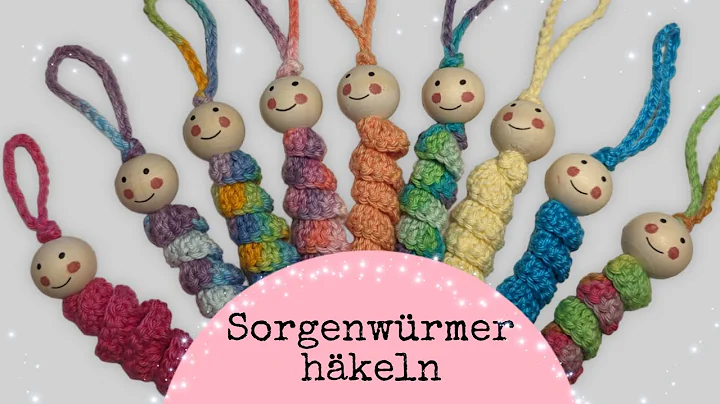Easy Crochet Reusable Duster Cover
Table of Contents:
- Introduction
- Supplies Needed for the Duster Cover
- Step 1: Making the Side Pieces
- 3.1 Chaining the Side Pieces
- 3.2 Single Crocheting the Side Pieces
- 3.3 Repeating the Rows for the Side Pieces
- Step 2: Making the Main Piece
- 4.1 Chaining the Main Piece
- 4.2 Single Crocheting the Main Piece
- 4.3 Repeating the Rows for the Main Piece
- Step 3: Joining the Panels
- Step 4: Single Crocheting Around the Duster Cover
- Step 5: Weaving in the Loose Ends
- Conclusion
How to Make a Duster Cover for Easy Cleaning
Introduction
Cleaning can be a chore, but it doesn't have to be expensive. In this article, we will show you how to make a reusable duster cover that is both practical and cost-effective. Using basic crochet techniques, you can create a duster cover that can be tossed in the washing machine for easy maintenance. Let's get started!
Supplies Needed for the Duster Cover
Before we begin, gather the following supplies:
- 5 mm crochet hook
- Lilly Sugar'N Cream yarn
- Scissors
- Tapestry needle
Step 1: Making the Side Pieces
To start, we will create the side pieces of the duster cover. Follow these steps:
3.1 Chaining the Side Pieces
Begin by chaining 12 stitches for each side piece. If you're making the main piece, chain 37 stitches instead.
3.2 Single Crocheting the Side Pieces
Single crochet in the back hump of the second chain from the hook, and continue single crocheting in the back hump of each chain until you reach the end.
3.3 Repeating the Rows for the Side Pieces
Turn your work and single crochet in the back loop only for each row. Repeat this process until your side pieces measure approximately 4 inches in height.
Step 2: Making the Main Piece
Next, we'll create the main piece of the duster cover. Follow these steps:
4.1 Chaining the Main Piece
Chain 37 stitches for the main piece.
4.2 Single Crocheting the Main Piece
Single crochet in the back loop only for each row until the main piece measures 4 inches in height.
4.3 Repeating the Rows for the Main Piece
Continue single crocheting in the same manner as the side pieces, ensuring the main piece matches the height of the side pieces.
Step 3: Joining the Panels
Now it's time to join the side and main panels of the duster cover. Follow these steps:
Lay the panels together and single crochet around the entire piece, matching the stitches together. At the corners, place three single crochets to allow for a smooth turn.
Step 4: Single Crocheting Around the Duster Cover
Single crochet around the edges of the duster cover, making sure to work into at least two strands for added durability and stability.
Step 5: Weaving in the Loose Ends
To finish the duster cover, weave in any loose ends using a tapestry needle. By securing the loose ends, your duster cover will be ready for use.
Conclusion
Congratulations! You have successfully created your own reusable duster cover. With this practical and cost-effective cleaning tool, you can easily maintain a clean home without breaking the bank. Enjoy your dusting ahead and happy cleaning!
Highlights:
- Make a reusable duster cover for easy cleaning
- Use basic crochet techniques and affordable materials
- Machine washable for easy maintenance
- Join panels to create a durable duster cover
- Weave in loose ends for a finished look
FAQ:
Q: Can I use a different size crochet hook for this project?
A: While a 5 mm crochet hook is recommended, you can experiment with different hook sizes to achieve your desired result. Keep in mind that using a different hook size may change the overall look and size of the duster cover.
Q: What type of yarn should I use for this project?
A: Lilly Sugar'N Cream yarn is suggested for this project, but you can use any comparable medium-weight cotton yarn. The choice of yarn may affect the texture and durability of the duster cover.
Q: Can I customize the size of the duster cover?
A: Absolutely! Feel free to adjust the measurements of the side and main panels to create a duster cover that fits your specific needs. Just remember to maintain the same stitch pattern and join the panels accordingly.
 WHY YOU SHOULD CHOOSE BEAUTYBADY
WHY YOU SHOULD CHOOSE BEAUTYBADY







